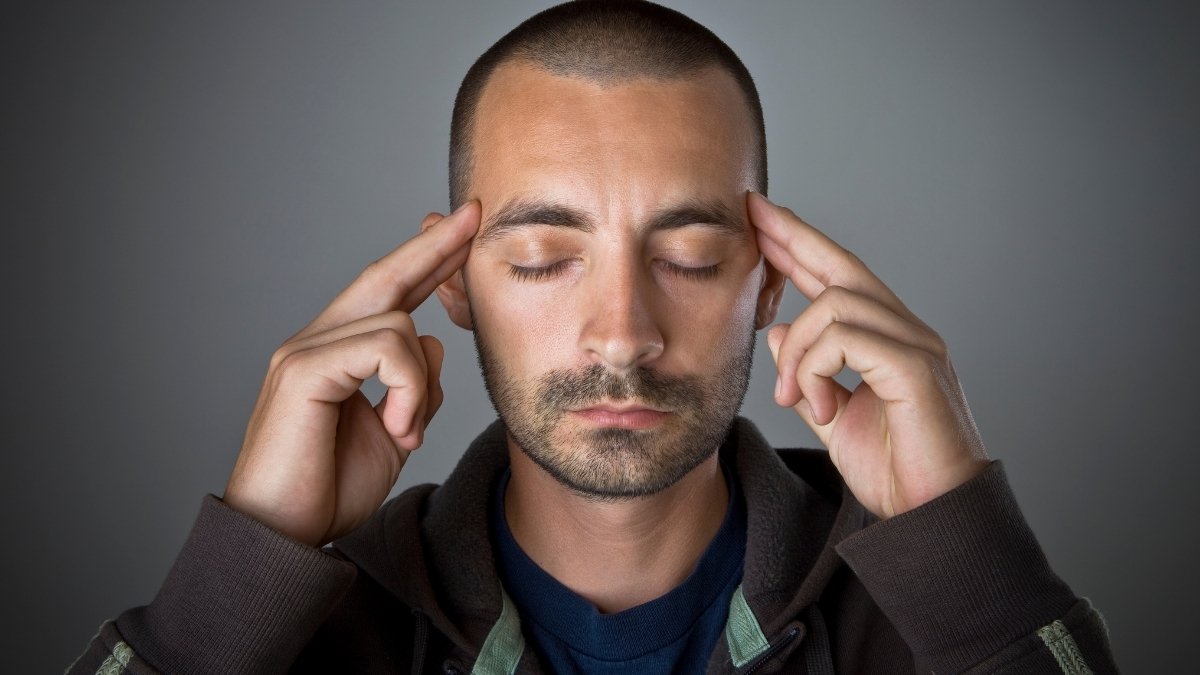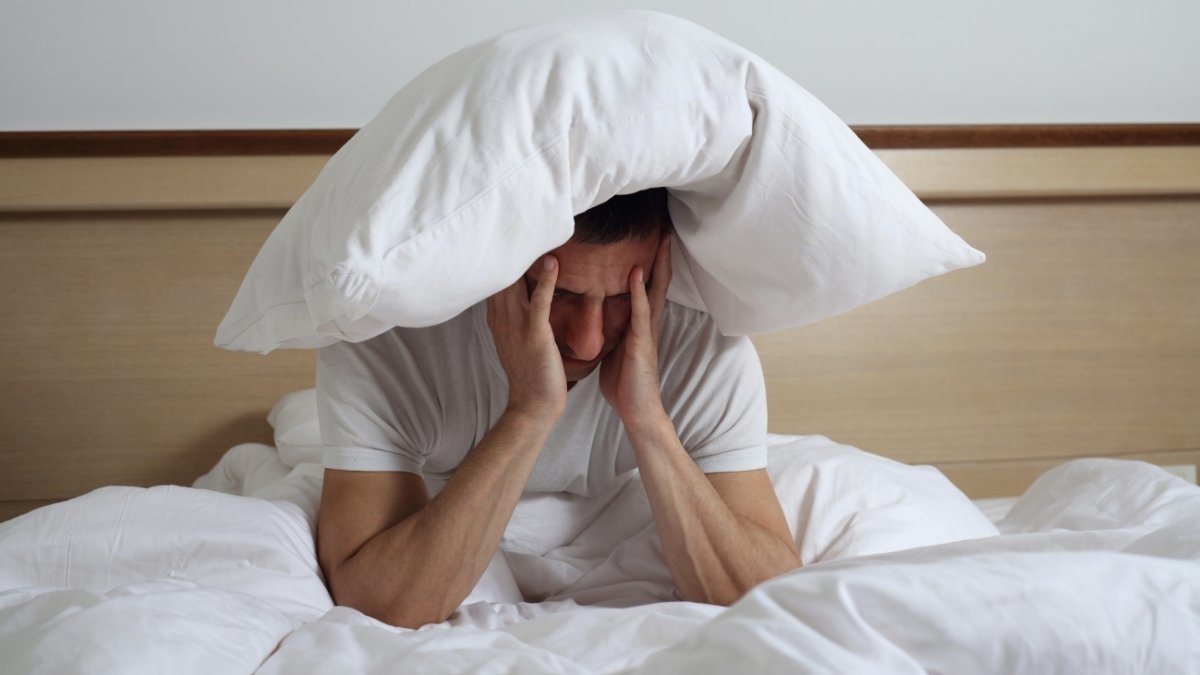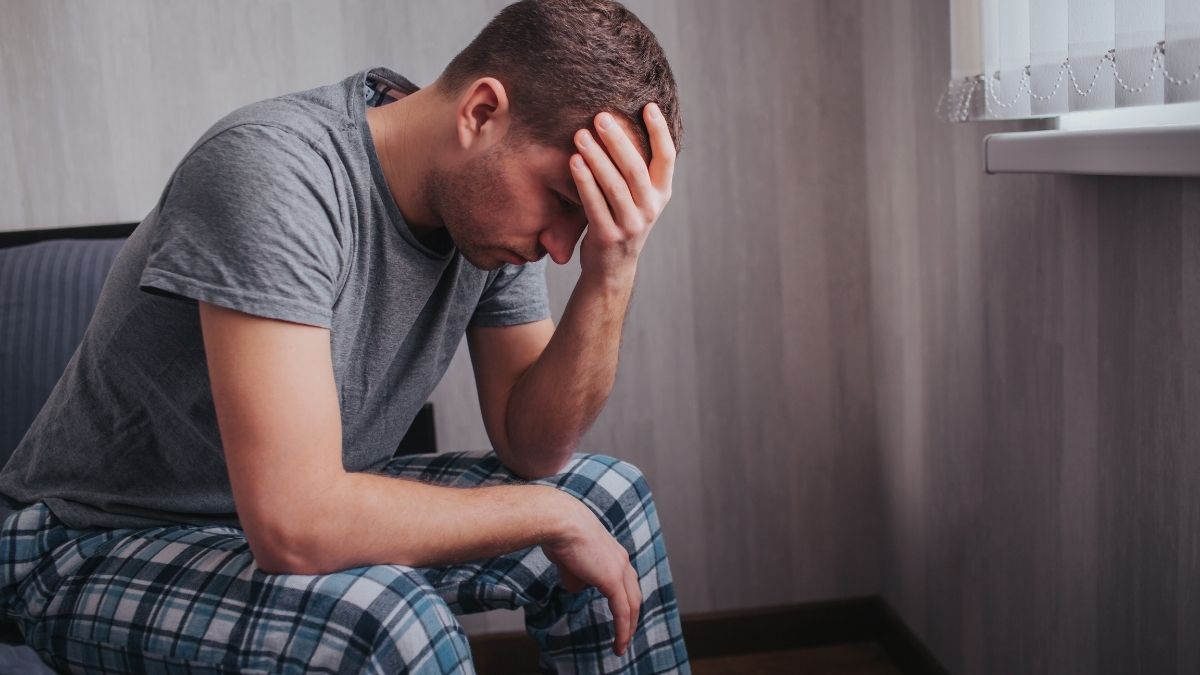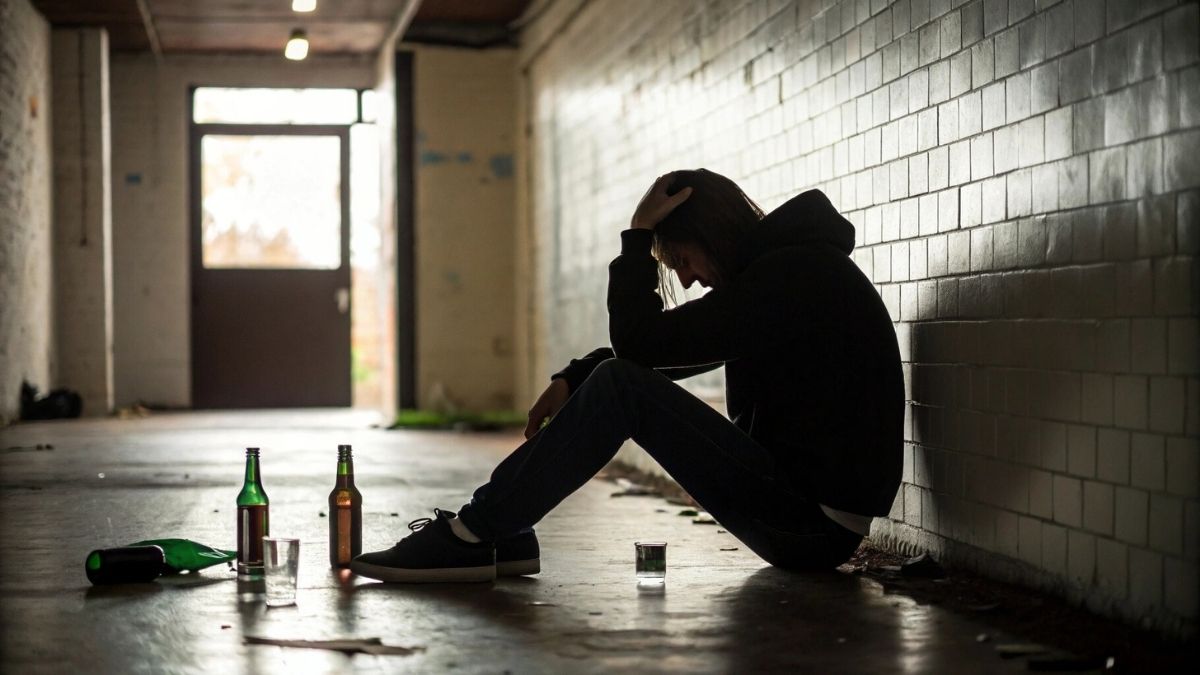Sarah noticed her usually outgoing teenager had been isolating in their room for weeks, refusing meals and neglecting personal hygiene. At first, she thought it was just teenage drama or stress from school. But deep down, she knew something was seriously wrong.
Too many people make Sarah’s mistake. They dismiss concerning mental health changes as temporary stress or “just a phase.” This thinking can be dangerous. What looks like normal life struggles might actually be critical warning signs that require immediate professional attention.
The difference between a rough patch and a mental health crisis isn’t always clear. But there are specific red flags that signal when someone needs help right now.
In this guide, you’ll learn exactly what to watch for. We’ll cover 8 specific mental health red flags that indicate serious concerns. You’ll know when to seek immediate help versus when you can monitor the situation safely.
More importantly, you’ll discover how to approach someone showing these warning signs without making things worse. And we’ll give you real resources for getting professional support when someone you care about is in crisis.
Recognizing these warning signs early can literally save lives. Let’s make sure you know what to look for.
1. Persistent Thoughts of Self-Harm or Suicide

When someone you care about talks about hurting themselves, you need to act fast. But how do you know when worry becomes urgent?
Direct vs. Indirect Warning Signs
Some people say it straight: “I want to kill myself” or “I’m going to hurt myself.” These are direct threats. Take them seriously every time.
Others drop hints. They might say “Everyone would be better off without me” or “I won’t be a problem much longer.” These indirect statements are just as dangerous.
When Thoughts Become Plans
There’s a big difference between passing thoughts and active planning. Passive thoughts sound like “Sometimes I wish I wasn’t here.” Active planning includes specific methods, timing, or locations.
If someone has moved from thoughts to planning, this is a crisis. Call for help immediately.
Risk Factors That Make Things Worse
Certain situations make suicidal thoughts more dangerous:
- Recent loss of job, relationship, or loved one
- Access to weapons or drugs
- History of suicide attempts
- Substance abuse
- Isolation from friends and family
What You Can Do Right Now
Don’t leave the person alone. Ask directly: “Are you thinking about suicide?” This won’t plant the idea – it shows you care.
Listen without judgment. Remove any weapons or pills if possible. Stay calm but take action.
Get Help Fast
Call 988 (Suicide & Crisis Lifeline) or text “HELLO” to 741741 (Crisis Text Line). These work 24/7 and they’re free.
If someone is in immediate danger, call 911.
The Numbers Tell the Story
Suicide ranks as the 10th leading cause of death in the US. About 90% of people who die by suicide had a mental illness that could be treated.
The good news? Most people who get help survive and go on to live full lives. Your quick action can save someone you love.
Remember: You don’t need to be a therapist to help. You just need to care enough to act.
2. Dramatic Changes in Sleep Patterns

Has someone close to you started sleeping all day? Or maybe they can’t sleep at all for days? These extreme changes are warning signs you shouldn’t ignore.
Too Much Sleep vs. No Sleep
Some people with mental health problems sleep 14+ hours every day. They stay in bed, skip meals, and avoid everything. This isn’t just being lazy.
Others go the opposite way. They stay awake for 48+ hours straight, running on pure energy. They might seem “wired” but crash hard later.
Both extremes signal trouble.
Why Sleep and Mental Health Connect
Your brain needs good sleep to work right. When mental illness strikes, sleep gets messed up first. About 75% of people with depression can’t sleep normally.
Depression often brings insomnia – lying awake all night, worrying. Bipolar disorder might cause someone to feel like they don’t need sleep at all during manic episodes.
When to Get Worried
Look for these warning signs:
- Sleep patterns change suddenly over 2-3 weeks
- Work or school performance drops
- Person seems confused or can’t focus
- Normal activities become impossible
- Sleep problems don’t improve after a week
How This Hurts Daily Life
Bad sleep makes everything harder. People make poor choices, get into accidents, or can’t handle stress. Relationships suffer when someone is always tired or too wired to connect.
Time for Professional Help
If sleep changes last more than two weeks, see a doctor. Sleep disorders mental health problems often happen together, and both need treatment.
Don’t wait for things to get worse. A sleep study or mental health evaluation can find the real cause and get proper treatment started.
Good sleep is the foundation of good mental health. When that foundation cracks, everything else starts to fall apart.
3. Complete Social Withdrawal and Isolation

Is someone you love suddenly avoiding everyone? They used to be social, but now they won’t answer calls or texts. This change could mean they’re struggling with serious mental health problems.
Normal Alone Time vs. Dangerous Isolation
Everyone needs quiet time. Introverts recharge by being alone. That’s normal.
But complete social withdrawal is different. This means someone stops all contact with people who matter to them. They miss birthdays, skip work, and ignore calls for weeks.
When Fun Activities Become Too Hard
Watch for people who quit doing things they used to love. Maybe they played guitar every day, but now it sits in the corner collecting dust. Or they loved going to movies but won’t leave the house.
This isn’t just losing interest. It’s a warning sign that depression or anxiety has taken over.
Cutting Off Family and Friends
The most concerning sign? When someone refuses contact with people who care about them. They don’t return calls from their best friend. They skip family dinners they never missed before.
Social isolation increases the risk of depression by 25%. And here’s why that matters: isolation makes everything worse.
How This Hurts Work and School
People who withdraw socially often fail at work or school too. They call in sick constantly, miss deadlines, or just stop showing up. Their grades drop fast.
The Mental Health Connection
Social withdrawal often signals depression, anxiety disorders, or other mental health conditions. The person might feel ashamed, worthless, or too tired to connect with others.
What You Can Do
Don’t give up on them. Keep reaching out, even if they don’t respond right away. Offer specific help: “I’m bringing dinner Tuesday at 6.”
If someone has been isolated for more than two weeks, encourage professional help. Social withdrawal mental health symptoms often get worse without treatment, but they do get better with the right support.
4. Severe Mood Swings or Personality Changes

Your friend was calm yesterday, but today they’re bouncing off the walls or crying uncontrollably. When mood swings become extreme, they might signal serious mental health problems.
Normal Bad Days vs. Dangerous Swings
Everyone has good days and bad days. You might feel grumpy on Monday and happy on Friday. That’s normal life.
Severe mood swings are different. They happen fast and go to extremes. Someone might go from deep depression to extreme energy in just hours or days.
What Personality Changes Look Like
People close to the person notice something is “off.” A quiet person suddenly becomes loud and aggressive. A responsible adult starts making reckless choices they’d never make before.
These changes worry family and friends because the person seems like a stranger.
Spotting Manic Episodes
During manic episodes, people might:
- Go on huge spending sprees, then feel crushing guilt later
- Think they’re famous or have special powers (grandiose behavior)
- Talk so fast others can’t follow
- Stay awake for days without feeling tired
- Make dangerous decisions like quitting their job suddenly
The Bipolar Connection
Bipolar disorder affects 2.8% of adults each year. It causes mood swings personality changes that cycle between extreme highs (mania) and extreme lows (depression).
During high periods, people feel unstoppable. During low periods, they can barely get out of bed. These aren’t just “moods” – they’re medical symptoms.
When to Get Help
If mood swings last more than a week or interfere with work and relationships, it’s time for professional help. Bipolar symptoms get worse without treatment but respond well to medication and therapy.
What You Can Do
Keep track of the mood changes. Write down when they happen and how long they last. This information helps doctors make accurate diagnoses.
Stay patient. The person isn’t choosing to act this way. Their brain chemistry is causing these extreme mood swings.
With proper treatment, people with severe mood disorders can live stable, happy lives. The key is getting help before the swings get worse.
5. Neglecting Basic Self-Care and Hygiene

When someone stops taking care of themselves, it’s often a cry for help. This isn’t about being lazy – it’s a serious warning sign of depression or other mental health problems.
What Self-Care Neglect Looks Like
The person stops showering for weeks. Their hair becomes greasy and matted. They wear the same dirty clothes for days.
They also stop eating real food. Instead, they live on chips, fast food, or nothing at all. They skip doctor appointments, even for serious health problems.
Living Spaces Fall Apart
Their home becomes chaotic. Dishes pile up in the sink. Trash overflows. Mail sits unopened for months.
This isn’t just being messy. When someone who used to be clean suddenly lives in filth, they’re struggling with something deeper.
The Depression Connection
Severe depression makes basic tasks feel impossible. Taking a shower requires energy they don’t have. Cooking feels too hard. Even brushing teeth becomes overwhelming.
Self-care neglect depression symptoms often go together because depression steals motivation for everything, including personal hygiene.
When You Need to Step In
If someone hasn’t showered in over a week or their living space becomes unsafe, it’s time to help. Don’t wait for them to ask.
Offer specific help: “I’m coming over Saturday to help with dishes.” Sometimes people need others to break the cycle.
Professional help becomes necessary when self-care neglect puts their health at risk. A therapist can help them rebuild these basic life skills while treating the underlying mental health condition.
6. Substance Abuse as Coping Mechanism

Someone you care about started drinking more after their divorce. Or maybe they use pills to “calm down” after bad days at work. When people turn to substances to handle emotions, it often signals deeper mental health problems.
Using Drugs and Alcohol to Feel Better
At first, it seems harmless. A glass of wine after a stressful day. Pain pills when anxiety gets bad. But soon, one drink becomes three. One pill becomes four.
The person starts using substances not for fun, but just to feel normal. They can’t handle sadness, anger, or fear without something to numb the pain.
Warning Signs of Escalating Use
Watch for these red flags:
- Drinking alone regularly
- Using substances every day, not just weekends
- Needing more alcohol or drugs to get the same effect
- Getting defensive when asked about their usage
- Missing work or family events because they’re drunk or high
The Hiding Game
People who use substances to cope often become secretive. They hide bottles, lie about how much they drink, or make excuses for their behavior.
They might have a drink before going to parties so others don’t see how much they really need.
How This Hurts Everything Else
Substance abuse mental health problems destroy relationships fast. Trust breaks down when someone lies about drinking. Kids feel scared when parents can’t stay sober.
Work performance crashes too. People miss deadlines, call in sick, or make dangerous mistakes.
The Dual Diagnosis Problem
Here’s a scary fact: 50% of people with mental illness also experience substance abuse. This is called dual diagnosis, and it makes both problems worse.
Depression makes someone drink more. Drinking makes depression worse. It’s a dangerous cycle.
Getting Real Help
Both the mental health issue and the substance abuse need treatment at the same time. Just treating one won’t work.
Look for programs that handle dual diagnosis. The person needs to learn healthy ways to cope with emotions instead of reaching for a bottle or pill.
Recovery is possible, but it requires professional help and support from family and friends.
7. Paranoid Thoughts or Detachment from Reality

Your friend thinks the government is watching them through their TV. Or maybe they hear voices that aren’t there. When someone loses touch with reality, they need help fast.
Normal Worry vs. Paranoid Thinking
Everyone worries sometimes. You might feel nervous about a job interview or wonder if someone doesn’t like you. That’s normal.
Paranoid thoughts are different. The person believes elaborate conspiracies without proof. They think neighbors are spying on them or that strangers are following them everywhere.
These aren’t just fears – they feel completely real to the person having them.
When People See or Hear Things
Hallucinations are serious warning signs. The person might hear voices talking to them or about them. They could see things that others can’t see.
Sometimes they respond to these voices out loud, making conversations seem confusing to others around them.
False Beliefs That Won’t Change
Delusions are fixed false beliefs. Someone might think they’re famous, that they have special powers, or that people are trying to poison their food.
No amount of evidence changes their mind. They build entire stories around these false beliefs.
Thinking Becomes Jumbled
Disorganized thinking makes conversations hard to follow. The person jumps from topic to topic without connection. Their sentences might not make sense.
They might create new words or repeat the same phrases over and over.
The Age Factor
First psychotic episodes typically occur between ages 16-30. This makes it extra scary for families watching young adults change so dramatically.
Early Warning Signs
Watch for these psychosis symptoms mental health warning signs:
- Talking to themselves frequently
- Acting suspicious of everyone
- Paranoid thoughts about being watched or followed
- Believing in conspiracy theories with no evidence
- Hearing voices or seeing things others don’t
Get Help Immediately
Don’t try to argue with their beliefs or convince them they’re wrong. This usually makes things worse.
Call a mental health professional right away. Early treatment for psychosis works much better than waiting. With proper medication and therapy, many people recover completely.
8. Inability to Function in Daily Life

When someone can’t handle basic responsibilities anymore, their mental health crisis has reached a dangerous point. This isn’t just having a bad week – it’s losing the ability to manage life.
Work and School Fall Apart
The person starts missing work or school regularly. They call in sick constantly, miss important deadlines, or just stop showing up completely.
They might lose job after job because they can’t focus or handle stress. Students fail classes they used to pass easily.
Relationships Break Down
Maintaining relationships becomes impossible. They stop returning calls from friends. Family dinners get skipped. They might forget important events like birthdays or anniversaries.
People who used to rely on them feel abandoned and confused.
Money Problems Get Worse
Bills pile up unopened. They can’t manage basic financial responsibilities like paying rent or buying groceries. Credit cards get maxed out or payments missed completely.
Some people spend money recklessly during manic episodes, then can’t afford necessities later.
Basic Life Skills Disappear
Simple tasks become overwhelming. Cooking dinner, doing laundry, or cleaning the house feel impossible. They might eat only fast food because making meals requires too much energy.
Personal hygiene suffers when even showering feels like too much work.
Things Get Progressively Worse
Functional impairment doesn’t stay the same – it gets worse over time without treatment. Someone might start by missing a few work days, then lose their job entirely.
When Professional Help Is Critical
If someone can’t handle basic life tasks for more than two weeks, they need professional help immediately. This level of mental health crisis requires treatment, not just support from family and friends.
With proper care, people can regain their ability to function and rebuild their lives. The key is getting help before everything falls completely apart.
When and How to Seek Help

You’ve noticed the warning signs, but now what? Knowing when to seek mental health help can save someone’s life. Here’s exactly what to do when you’re worried about someone.
Crisis vs. Urgent: Know the Difference
If someone talks about suicide, has detailed plans to hurt themselves, or shows signs of psychosis, this is a crisis. Call 911 or take them to the emergency room immediately.
For urgent concerns – like severe depression, isolation lasting weeks, or inability to function – you have a little more time, but don’t wait long.
Crisis Resources That Work 24/7
- Call 988 (Suicide & Crisis Lifeline)
- Text “HELLO” to 741741 (Crisis Text Line)
- Call 911 if someone is in immediate danger
How to Start the Conversation
Don’t wait for the “perfect” moment. Be direct but kind: “I’m worried about you. You haven’t seemed like yourself lately.”
Ask specific questions: “Have you been thinking about hurting yourself?” This won’t plant the idea – it shows you care enough to ask.
Listen without trying to fix everything. Sometimes people just need to know someone notices their pain.
Types of Mental Health Professionals
Different providers help with different problems:
- Psychiatrists are medical doctors who prescribe medication
- Psychologists provide therapy and testing
- Licensed therapists offer counseling and coping strategies
- Social workers help with practical life problems
Dealing with Insurance and Wait Times
Call your insurance company first to find covered providers. Average wait times for appointments range from 2-8 weeks, so start looking early.
If you can’t wait, try:
- Community mental health centers
- Online therapy platforms
- Hospital outpatient programs
- Employee assistance programs through work
Supporting Someone Through Treatment
Going to therapy feels scary for many people. Offer to drive them to their first appointment or help them research providers.
Don’t take it personally if they resist help at first. Keep offering support without being pushy.
Celebrate small wins. Getting out of bed, taking medication, or attending therapy are huge steps for someone with mental illness.
The Bottom Line
Mental health problems don’t get better on their own. Professional help works, but only if people actually get it.
When to seek mental health help isn’t always clear, but it’s better to ask for help too early than too late. Mental health resources exist to help people recover and rebuild their lives.
Your quick action today could save someone tomorrow.
Conclusion
These 8 mental health red flags can save lives when you know what to look for. Persistent thoughts of self-harm, dramatic sleep changes, social withdrawal, severe mood swings, neglecting self-care, substance abuse, paranoid thoughts, and inability to function daily are all serious warning signs.
Early intervention makes all the difference. People who get help quickly recover faster and avoid dangerous crisis situations. But here’s the key: don’t wait for someone to ask for help.
Most people with mental illness won’t reach out on their own. They feel ashamed, scared, or too sick to recognize they need support.
Trust your instincts. If someone you care about shows these warning signs, take action. Make the call. Find the resources. Drive them to appointments if needed.
Mental health problems are medical conditions that respond well to treatment. With proper care, people recover and go on to live full, happy lives.
Your willingness to seek professional help could be the thing that saves someone you love.


